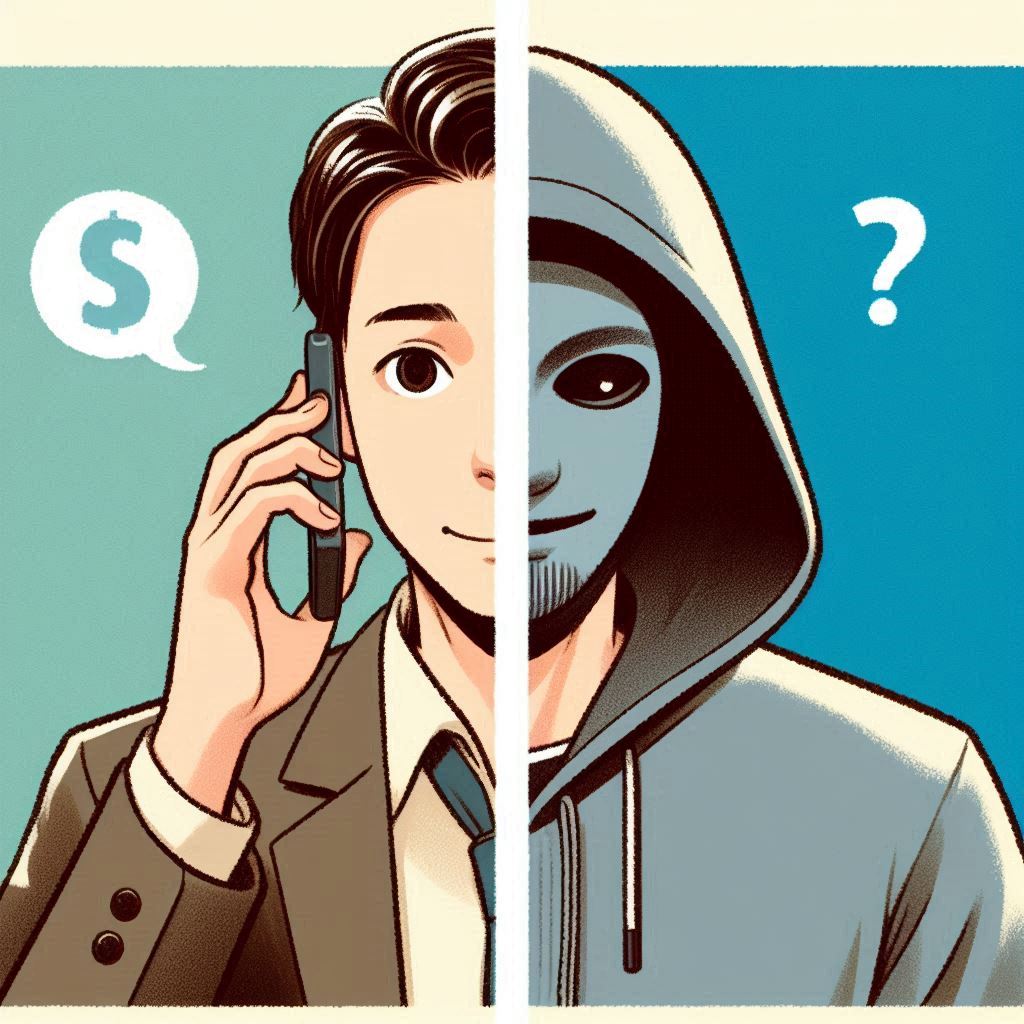Imagine you’re having a casual conversation when suddenly a call comes in. The caller claims to be from your bank. “There’s an issue with your account,” they say. You need to act fast, or the consequences could be severe. Your heart races. What do you do? You give them the details they ask for, without a second thought—and that could have been your big mistake. What seemed like a harmless call was actually a vishing scam, where a fraudster tried to steal your personal information.
Vhishing is a clever trick where scammers use the phone to deceive you. But don’t worry! We’re here to show you how to recognize these scammers and keep them at bay. Once you know what to look for, you’ll never fall for these tricks again.
What Exactly Is Vishing?

Vishing (short for “Voice Phishing”) is a type of fraud where scammers use the phone to get you to reveal sensitive information, which they can then use against you. They often pose as trustworthy organizations—banks, government authorities, or even your internet provider. Their goal? To steal your personal information or even your money!
It’s a bit like a magic trick: while you think you’re speaking to someone you can trust, they’re quietly taking something from you—your bank account, your identity, or both.
7 Signs You're Dealing with a Vishing Scam

How can you tell if a call is a scam? Here are seven red flags to watch for:
1. An Unexpected Call from a Trusted Source
Let’s say you get a call from your bank, telling you there’s an issue with your account. Sounds reasonable, right? But be careful! Banks, hospitals, or government agencies usually don’t call you out of the blue to ask for sensitive data. If it happens, be skeptical. Good scammers know how to put pressure on you—“If you don’t act now, your account will be frozen!” That’s the classic scam line.
2. Strange Audio Quality
Sure, phone calls don’t always sound perfect, but if you suddenly hear odd background noises, or if the voice sounds robotic or unnatural, something’s not right. You might recognize the person on the other end of the line, but their voice might sound odd—like a bad magic trick.
3. Urgent or Too Convincing Language
Vishing scammers are experts in persuasion. They rely on fear, threats, or promises of rewards. Common phrases include, “You need to act now, or you’ll lose your money!” or “You’ve won a huge prize—but only if you share your bank details immediately.” Don’t let them rush you. Stay calm, and think carefully before giving away any information.
4. Suspicious Callback Numbers
If the caller gives you a phone number and insists you use it instead of the official number from the institution, be wary. Scammers often provide fake numbers to lead you directly into their trap. Take a moment to verify the number before calling back.
5. Unknown Numbers
Sometimes you’ll receive a call from an unfamiliar but seemingly local number. Or it will display a number that doesn’t match the official one for the institution. Again, if you don’t recognize the caller, proceed with caution. Let the voicemail pick up.
6. Tech Support and Remote Access Requests
A common vishing trick is for scammers to pretend to be “technical support.” They claim your device has a virus or that you urgently need to install an update. They ask you to grant them remote access to your computer or phone. What happens next? They steal your information, install malware, or scan your device for sensitive data.
7. Urgent Payment Requests
Scammers often pressure you into making payments quickly—sometimes in the form of cryptocurrency or gift cards. Legitimate companies don’t ask for payment this way. If someone suddenly demands money, especially in a method that feels strange, trust your instincts and stay cautious.
How to Protect Yourself from Vishing

Vishing may sound dangerous, but you can protect yourself with a few simple steps. Here’s how:
1. Hang Up—Then Verify
If something feels off, just hang up. Don’t give the scammer any more chances to influence you. Then, call the institution directly using their official number and ask if they tried to contact you.
2. Be Cautious with Unknown Numbers
Did an unknown number call you? Don’t pick up right away. Let it go to voicemail and listen carefully to the message. If you’re unsure, call back—but make sure you use the official contact information.
3. Avoid Sharing Sensitive Information Over the Phone
No matter what they say, never share personal details like your Social Security number, bank account numbers, or passwords over the phone if you’re not certain who you’re speaking with.
4. Double-Check Phone Numbers
If they give you a number to continue the conversation, verify it! Scammers often use numbers that are very similar to official ones. They might also tell you not to use the publicly available number.
5. Use Two-Factor Authentication
For your most important accounts, like online banking, always enable two-factor authentication. This adds an extra layer of security in case a scammer tries to access your information.
6. Use Call Blocking Features
Modern smartphones have features that allow you to block unknown or suspicious calls. Make use of this to protect yourself from unwanted vishing attacks.
7. Get Educated
If you work in an organization, vishing should be part of your cybersecurity training. Recognizing and responding to these attacks is an essential skill to protect yourself and your company. Some businesses even offer simulations and games to help their employees understand and spot vishing attempts.
Final Thoughts: Staying One Step Ahead
Vishing isn’t a new threat, but with the right precautions, you can keep yourself safe. It might be tempting to react immediately to an urgent call, but always take a moment to think before you share any personal or financial details. Scammers have perfected their tricks, but so can you—once you know what to look for.
Stay alert, trust your instincts, and remember: it’s always better to ignore a call and call back later than to fall for a scam. This way, you’ll keep your data and money safe—and leave the scammers in the dust!







